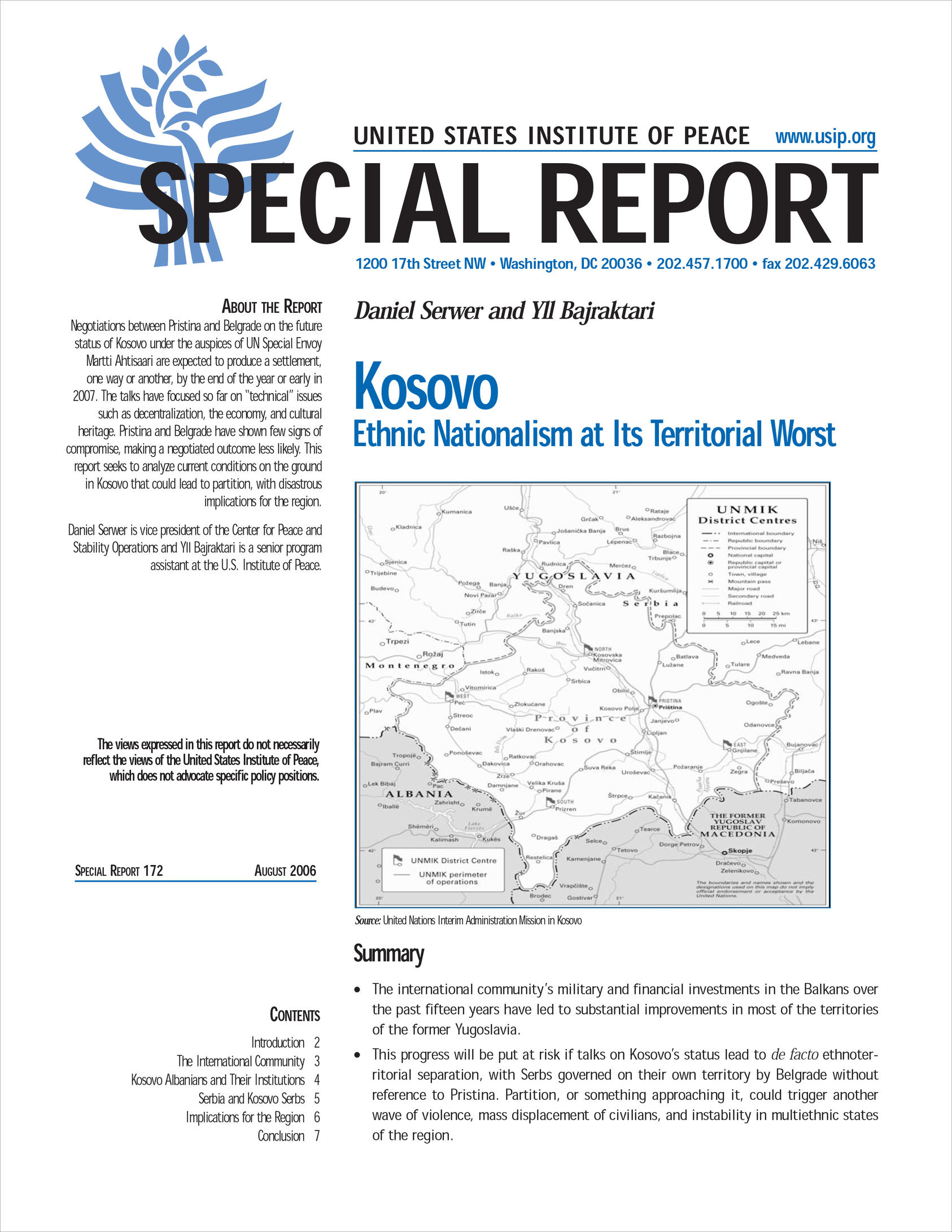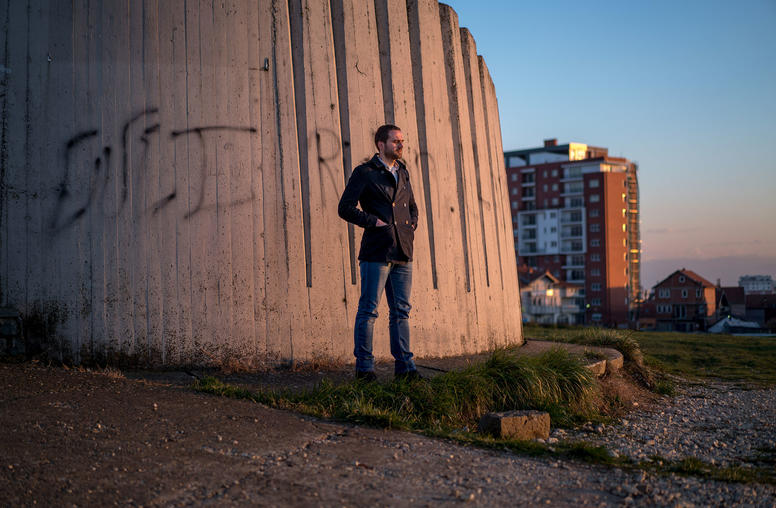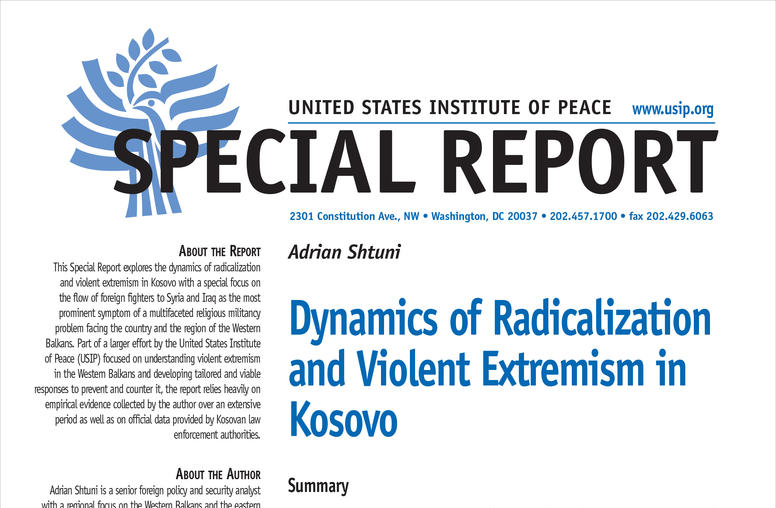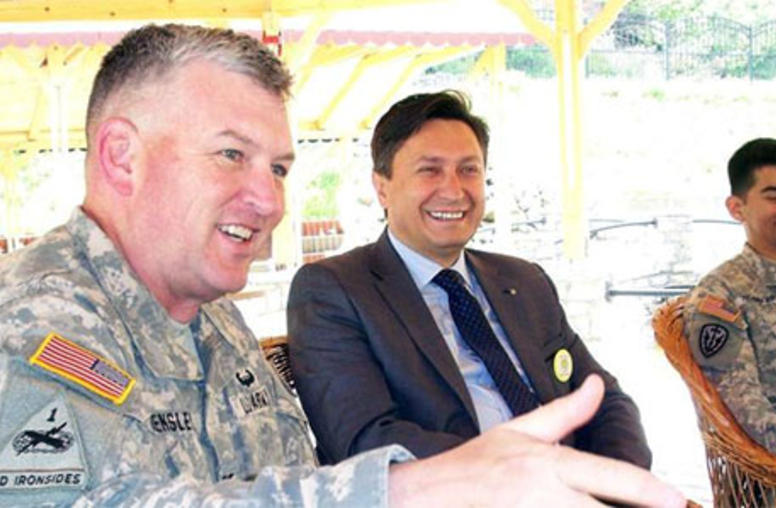Kosovo: Ethnic Nationalism at Its Territorial Worst
Even with negotiations underway under the auspices of the United Nations, the future status of Kosovo remains reliant on the current conditions on the ground. With Pristina and Belgrade showing no signs of compromise, a partition of Kosovo could lead to disasterous implications for the region.

Summary
- The international community's military and financial investments in the Balkans over the past fifteen years have led to substantial improvements in most of the territories of the former Yugoslavia.
- This progress will be put at risk if talks on Kosovo's status lead to de facto ethnoterritorial separation, with Serbs governed on their own territory by Belgrade without reference to Pristina. Partition, or something approaching it, could trigger another wave of violence, mass displacement of civilians, and instability in multiethnic states of the region.
- The international community has failed so far to reintegrate Serbs into Kosovo. Freedom of movement is insufficient, Serbs returning to their homes in Albanian-majority areas are minimal, Kosovo's governing institutions lack Serb representation, and Belgrade has tightened its grip on Serbs living in the north and in enclaves elsewhere.
- Serbia aims to govern the Serbs of Kosovo directly from Belgrade on clearly defined territory and without reference to Pristina. This is precisely the kind of ethnoterritorial separation that will cause trouble throughout the region.
- The Kosovo Albanian leadership has failed to improve the living conditions of Serbs living in Albanian-majority areas. Hardliners among Kosovo Albanians would also like to see ethnoterritorial separation, as it would offer them a chance to expel the remaining Kosovo Serbs south of the Ibar River and rid themselves of a "Trojan horse."
- If the status talks lead to ethnoterritorial separation in Kosovo, serious instability could affect southern Serbia (Presevo Valley), western Macedonia, and Bosnia.
Introduction
The international community has been involved in war and peace issues in the former Yugoslavia for the past fifteen years. This portion of the Balkans has drawn both military and financial support from the international community unmatched on a per capita basis by any other international intervention in recent history.
The result has been a qualified and partial success: the wars that plagued the region in the 1990s, aimed at creating ethnically pure states, have ended. Today, the situation by and large is improving. Slovenia, the first republic to break away from Yugoslavia, is already a member of the European Union (EU) and the North Atlantic Treaty Organization (NATO). Croatia, after enabling the arrest and transfer of indicted General Ante Gotovina to the International Criminal Tribunal for the Former Yugoslavia in The Hague, is opening talks on EU accession.
In Bosnia and Herzegovina, political leaders have embarked on their first effort at reforming the Dayton Accords in a way that would make their government more functional and compatible with requirements set by the EU, which has formally opened talks for a stabilization and association agreement. Even once recalcitrant Bosnian Serbs have come to understand that they can better leverage their political influence by cooperating than by undermining state institutions. They are choosing a major role in Sarajevo over a bit part in Belgrade.

UNMIK District Centers (Courtesy: United Nations Interim Administration Mission in Kosovo)
Macedonia, after a relatively small-scale conflict in 2001 between Albanians and Macedonians, is moving closer to joining the EU. The Ohrid Framework Agreement, which brought peace, has benefited Macedonia's Albanians, who increasingly accept their role inside Macedonia and reject romantic notions of Greater Kosovo or Greater Albania. It also reestablished the legitmacy of the Macedonian state. In December 2005, Macedonia was granted candidate status and is now awaiting a date for accession talks to begin. Recent election troubles notwithstanding, Albanians in Macedonia have a strong incentive to work within the Macedonian political framework: they could become the first Albanians in the region to claim EU citizenship.
In April 2005, the European Commission adopted a feasibility study that concluded Serbia was ready to negotiate a stabilization and association agreement, provided it cooperates in the arrest of indicted war criminal Radko Mladic, which has not yet taken place. Montenegro's successful independence referendum, conducted on May 21, 2006, means that Serbia will negotiate with the EU separately from Montenegro. But Montenegrin independence entailed no risk of war, as secessions of former Yugoslav republics did in the 1990s. Montenegro is an explicitly nonethnic state, one in which several minoritiessupported independence. There is no appetite in either Podgorica or Belgrade for use of the military despite passionate feelings among some of their citizens.
The question of Kosovo's future political status remains the only unresolved Balkan issue that could reverse progress made in the past decade. While partition solutions have been more or less avoided in the rest of the Balkans, in Kosovo ethnoterritorial division is a likely outcome, whether negotiated or by force. The Contact Group (consisting of the United States, the United Kingdom, Russia, Germany, France, Italy, and the EU) made it clear in its guiding principles for the status talks that Kosovo will not be partitioned,1 but did not specify how to avoid partition. Should ethnoterritorial separation in Kosovo be formalized, the implications for the region could be immense. It could unravel the regional fabric and vitiate an enormous investment in maintaining multiethnic states, avoiding redrawing borders to accommodate ethnic differences, and preventing mass displacement of civilians.
This paper will consider the prospects for avoiding ethnoterritorial separation and possible partition in Kosovo. It will analyze the main actors and their preferences, including the international community, the Kosovo Albanians, and finally Serbia and Kosovo Serbs.
Conclusion
The question of Kosovo's status is gradually boiling down to the question of the status of the Kosovo Serbs, and the degree of their integration into the rest of Kosovo. Or, to put it another way, the question of Kosovo's status is not whether it will be independent or not, but whether it will be sovereign and, if so, over what territory.
Kosovo is already independent in the sense that the Albanian-populated areas govern themselves, within limits imposed by the UN Security Council, independently of Belgrade. No one in Belgrade has put forward a plan to govern the Albanians, and no one any longer imagines—as Milosevic did—that they can chase the Albanians from Kosovo. But if decentralization allows separate governance of the Serbs within Kosovo, without reference to Pristina, Kosovo will not be sovereign over the territory occupied by Serbs. It should be no surprise then that some in Belgrade and in West European capitals imagine that Kosovo can be given independence but not a seat at the UN, where all sovereign states rightfully sit.
This kind of ambiguous solution is a formula for failure and violence. Seven years after NATO's intervention, the future of Kosovo and most of the rest of the former Yugoslavia is once again at stake. With talks on the future status of Kosovo already initiated, the implications of ethnoterritorial separation inside Kosovo need to be understood: calling it decentralization does not change reality, and the reality of ethnoterritorial separation leads to instability and violence. The international community and the people of the Balkans have come too far over the past decade to end up in a scenario that would only satisfy extreme nationalists. The Balkans endgame can be a peaceful one, but only if ethnoterritorial separation is ruled out.
Notes
1. United Nations Office of the Special Envoy for Kosovo, "Guiding Principles of the Contact Settlement of the Status of Kosovo," January 31, 2006, http://www.unosek.org.
About the Report
Negotiations between Pristina and Belgrade on the future status of Kosovo under the auspices of UN Special Envoy Martti Ahtisaari are expected to produce a settlement, one way or another, by the end of the year or early in 2007. The talks have focused so far on "technical" issues such as decentralization, the economy, and cultural heritage. Pristina and Belgrade have shown few signs of compromise, making a negotiated outcome less likely. This report seeks to analyze current conditions on the ground in Kosovo that could lead to partition, with disastrous implications for the region.
Daniel Serwer is vice president of the Center for Post-Conflict Peace and Stability Operations and Yll Bajraktari is a senior program assistant at the U.S. Institute of Peace.



